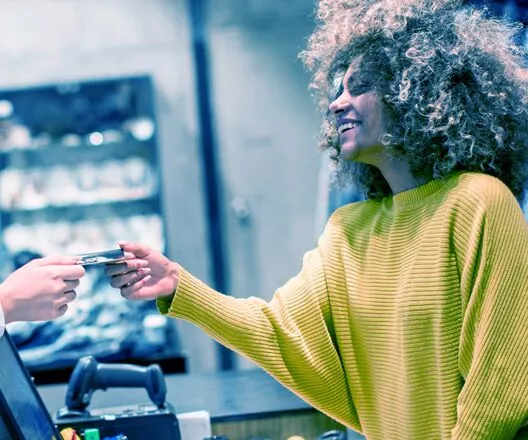
Listen to this blog
There are Big Changes Happening in the Analytics Industry
Being in the digital space means constantly growing and navigating new ways to understand users and their multi-platform behavior. But with more data available for business analysis, the user journey will only grow more complicated. So, if you are a business in the digital world, chances are you will be impacted by one of the two major changes happening right now.
Google is Sunsetting Universal Analytics
The first major change revolves around the announcement of Universal Analytics Sunset by Google in July of 2023. Universal Analytics (UA), a tool many businesses have relied on heavily over the years, was originally built for a generation of users on desktops, reliant on cookies and sessionisation. This initiative will replace Universal Analytics and push users to Google Analytics 4 (GA4). Google’s new industry solution will pave the way for user-centric measurement and privacy control.
The EU Announces Big Changes Around Google’s Compliance with GDPR
The second revolves around GDPR, cookies, and the European Union Commission. We all know that users are now more in control of their data, with cookies becoming obsolete. However, in recent months the European Union and 5 of their regions have come forward to ban the use of Google Analytics for their citizen’s privacy.
Overall, two different changes are happening simultaneously in the industry, and your site is likely impacted by one if you use Google Analytics.
What is Google Analytics 4?
Google Analytics 4 was developed for 2 main reasons – to allow marketers to not rely exclusively on cookies and to drive more user-centric measurement. With privacy being one of the platform’s core differentiators, Google’s goal was to provide a better experience for marketers and website users. It sounds great, but adopting all these new updates from Google will require a massive lift. To be more precise with these timelines:
Google Universal Analytics will stop processing and collecting data on July 1st, 2023.
If you use Universal Analytics 360, you have some extra time, and your data processing will end on October 1st, 2023.
From that point on, Google Analytics 4 will be the new “Google Analytics” for website tracking and cross-platform insights.
How Google Analytics 4 New Features will Add Value to Your Business?
Beyond privacy and cross-platform control, Google Analytics 4 is also known for five key areas of data improvement.
1. A More Comprehensive Picture of Touchpoints:
Customer lifecycle is a new measurement model that GA4 has recently improved on. This new model allows for independent session analysis.
2. Improved Channel Attribution:
If you have had limitations using Universal Analytics’ cross-channel attribution report, this one is for you. GA4’s new data-driven attribution assigns credit beyond just the “last click,” providing a more comprehensive influence on conversions.
3. Increased Data Value:
New to GA4 is machine learning, which will generate predictive insights about your user’s behavior, leads, and conversions. It also allows for audience creation, so more enhanced segmentation can be used and automatically produce critical insights.
4. Increased Data Connection:
Much like Universal Analytics, GA4 features integration into other products such as Google Ads and Search Console.
When Should I Opt for Google Analytics 4 Migration?
If you haven’t already, it is recommended you get your new Google Analytics 4 properties up and running as soon as possible. There are known data discrepancies between GA4 and UA, so the sooner you can get both running simultaneously, the better. You wouldn’t want to turn on GA4 on July 1st and realise your data isn’t at the level it needs to be.
It’s also important to migrate ASAP to allow time for company-wide education. It may still be Google Analytics, but it is an entirely new wave of measurement and metrics available, requiring marketers to learn what we were once experts at — all over again.
How can I Prepare for a Successful Google Analytics 4 Migration?
The first step is making a plan to back up your current data and then deciding on the timeline for the adoption of GA4. Finding the right experts to set up your GA4 property is crucial as it requires a heavy lift on its tag management implementation side. This is also the perfect opportunity to assess your current data and decide if you want to enhance or track any additional metrics.
Visionet’s Data Analytics Consulting Services instilling over 10+ years of data governance, implementation, and analysis expertise are well-equipped to provide additional support for your transition to GA4. Get in touch with one of our specialists for a customised Google Analytics 4 solution.
A Brief Introduction to GDPR
The General Data Protection Regulation (GDPR) is Europe’s new data privacy and security law. This was drafted and passed by the European Union (EU) and imposed obligations for organisations worldwide that target and collect personal data on EU citizens, whether your company monitors online behavior or offers goods and/or services. This regulation went into place on May 25, 2018.
With GDPR, the regulations themselves are approached on a macro level. As a result, they are light on specifics, making the compliance process a daunting task for enterprises without full legal/privacy teams.

The 7 Principles of GDPR include:
1) Lawfulness, fairness, and transparency – the end-user must provide consent, knowing that this is a legal matter and that the website is clearly stating the reasons for what or why you are collecting the data in the first place to the end-user.
2) Purpose limitation – only acquire and process data as outlined by your intent for the utilisation of the data and communicated to the end-user.
3)Data minimisation – you can only collect the smallest amount of data to fulfill the purpose of collecting the data.
4)Accuracy – you must ensure that the data acquired is frequently audited and remove any discrepancies or errors to ensure completeness.
5)Storage limitation – the end-user must be informed of the time from the initial collection of data to the final use and whether it will be anonymised after inactive use of the data.
6)Integrity and confidentiality (security) – you need to establish workflows to encrypt end-user data as well as maintain confidentiality
7)Accountability – you need to retain the proof of records and data usage
Key Factors You Should Know About GDPR for Your Site?
If you plan on collecting cookies or other personal data, you need user consent before processing user data. Not providing consent freely, clearly visible, and in simple language, you will be deemed not GDPR compliant. Additionally, if the user wants access to their personal data and chooses to withdraw their data, you must honor their request.
GDPR guidelines also require websites to save the consensual data as proof of following the EU guidelines. If you experience a data loss or breach of data, then providing notice to the parties affected is essential to maintain compliance.
As if this wasn’t complicated enough, this new law has implications for your Google Analytics 4 migration.
How Does this Impact My Data If I use Google Analytics?
According to The CJEU judgment in the Schrems II case, it was noted that
“US public authorities’ use and access of EU data were not restricted by the principle of proportionality; and the Ombudsperson mechanism does not provide data subjects with any cause of action before a body that offers guarantees substantially equivalent to those required by EU law.”
AKA – Google Analytics is a US company, and its data is stored in the USA, which means it no longer satisfies the requirements of EU privacy law (and yes, that includes Google Analytics 4).
In fact – 5 European countries have come forward “banning” Google Analytics altogether. These include:
1) Italy (Italian SA)
2) Austria (Austrian Data Protection Authority)
3) France (French Data Protection Agency)
4) Denmark (Danish Data Protection Agency)
5) Netherlands
Your Next Steps for Google Analytics Privacy Implications
If you believe your company may be impacted directly by these changes, we recommend flagging this issue to your legal/privacy counsel now. However, it is ultimately your choice to determine how much risk/timing you are comfortable with through the uncertainty of the implications of this news. Not to add more pressure, but electing not to follow GDPR requirements can result in legal action and fines.
We cannot help advise you on the legal risk associated with GDPR, but we can assist with compliance implementation.
The Visionet Compliance Package
Using our team’s collective 10+ years of industry experience, we have put together a unique implementation package to assist impacted companies like yours in migrating to new platforms. Whether you are looking to upgrade with Google Analytics 4 migration or a new compliant reporting tool, we can source, customise, and implement various analytics platforms, so your crucial data isn’t lost (Bonus – this also includes cookie consent implementation).
Contact one of our specialists today to walk you through what Visionet Analytics Compliance setup can look like for your company and assist in your implementation strategy and execution.




